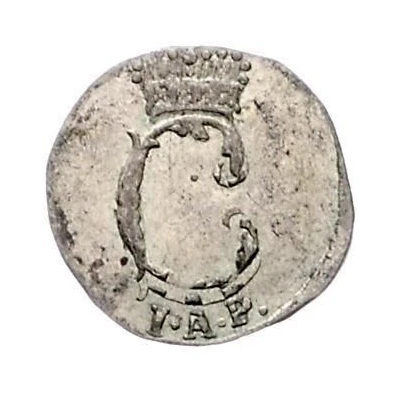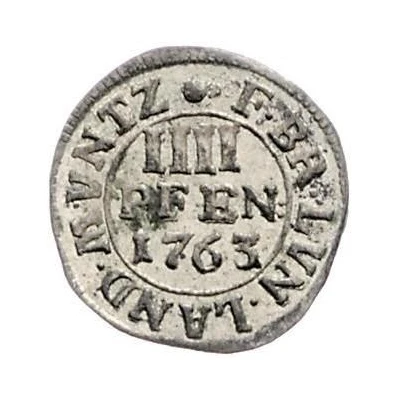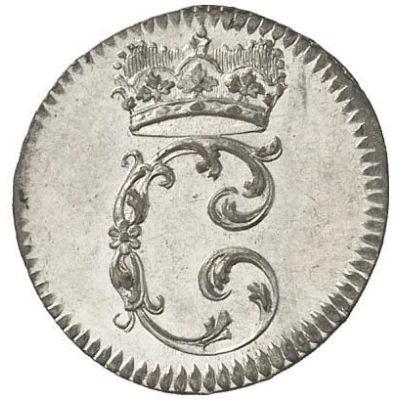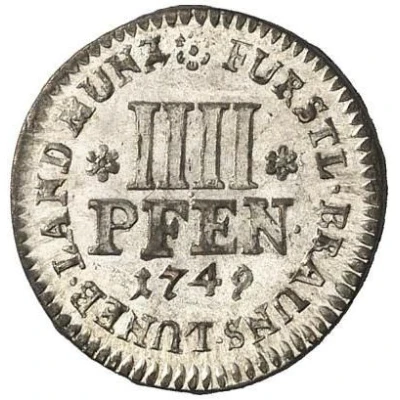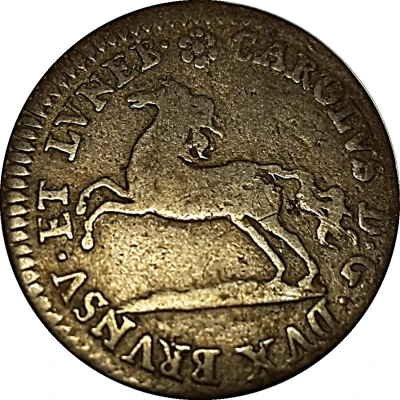
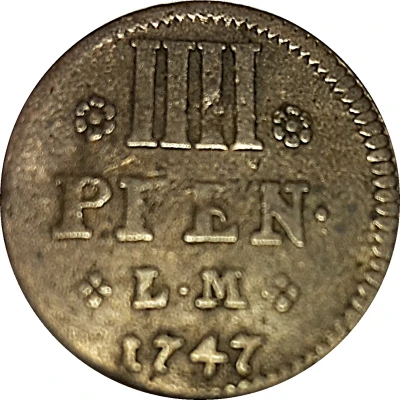

4 Pfennigs - Charles I
| Billon | 0.9 g | 16 mm |
| Issuer | Principality of Brunswick-Wolfenbüttel (German States) |
|---|---|
| Prince | Charles I (Karl I) (1735-1780) |
| Type | Standard circulation coin |
| Years | 1747-1750 |
| Value | 4 Pfennigs (Vierling) (1⁄72) |
| Currency | Thaler (1499-1814) |
| Composition | Billon |
| Weight | 0.9 g |
| Diameter | 16 mm |
| Thickness | 0.65 mm |
| Shape | Round |
| Demonetized | Yes |
| Updated | 2024-10-05 |
| Numista | N#159013 |
|---|---|
| Rarity index | 97% |
Reverse
4-line inscription with denomination and date.
Script: Latin
Lettering: IIII // PFEN // L.M. // (Date)
Translation: IIII Pfennig Land Münze 1747
Interesting fact
One interesting fact about the 4 Pfennigs coin from the Principality of Brunswick-Wolfenbüttel is that it was minted during a time of great economic and political change in Europe. The coin was issued during the reign of Charles I, who was the Duke of Brunswick-Wolfenbüttel from 1747 to 1750. During this period, the Holy Roman Empire was dissolved, and many German states, including Brunswick-Wolfenbüttel, began to issue their own coins. The 4 Pfennigs coin was one of the first coins minted by Brunswick-Wolfenbüttel, and it features an image of Charles I on one side and the coat of arms of the principality on the other. Despite its small denomination, the coin was made of billon, a type of alloy that was commonly used for coins during this time period. Today, the 4 Pfennigs coin is a rare and valuable collector's item, providing a glimpse into the economic and political history of 18th-century Europe.
